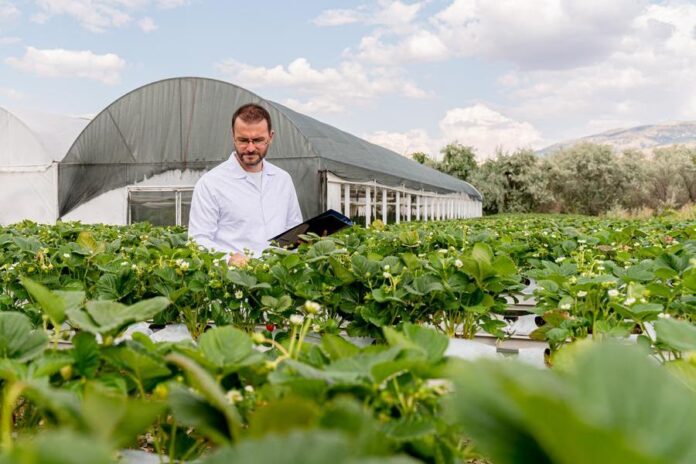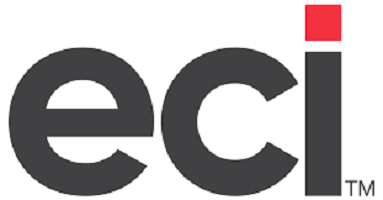
Sponsored by ECI Software Solutions
In today’s dynamic food and beverage (F&B) landscape, innovation reigns supreme. Consumers crave exciting flavors and healthy options while regulatory requirements continue to evolve. For process manufacturers, navigating this complex environment requires a strategic approach to product development, production, and compliance. This is where Product Lifecycle Management (PLM) emerges as a game-changer.
PLM is a holistic approach that integrates all aspects of a product’s journey. By implementing a PLM system, F&B manufacturers can gain a competitive edge by addressing several challenges:
- Maintaining compliance with FSQA regulations: Streamline adherence to food safety protocols like HACCP with PLM, ensuring product quality and consumer trust.
- Optimizing new product development (NPD): PLM fosters department collaboration, accelerating time-to-market for innovative products.
- Enhancing supply chain visibility and traceability: Real-time data from PLM empowers proactive risk management and faster response to potential issues.
- Controlling production costs and minimizing waste: PLM optimizes formulations and production processes, leading to significant cost savings.
In short, PLM is not just a software solution; it’s a strategic investment empowering F&B manufacturers to unlock new opportunities for growth, innovation, and profitability.
The recipe for success: How PLM propels F&B product development
The fast-paced F&B industry demands efficient new product development (NPD) processes. Traditionally, NPD can be plagued by information silos, hindering collaboration, and slowing time-to-market. PLM solutions bridge these gaps, streamlining the NPD process from ideation to production.
Here’s how PLM empowers F&B manufacturers to achieve a competitive edge in product development:
- Centralized recipe management: PLM provides a secure, central repository for storing and managing recipes. This eliminates version control issues and ensures everyone works with the latest formulation.
- Enhanced collaboration: PLM fosters seamless collaboration between product development, quality control (QC), and marketing teams. Teams can share ideas, iterate on formulations, and ensure product specifications are met.
- Data-driven formulation and cost optimization: Integrate PLM with existing databases, allowing formulators to access real-time ingredient costs and supplier information. This empowers data-driven decision-making and cost-effective formulation optimization.
- Streamlined automation: PLM automates repetitive tasks such as recipe approvals and regulatory compliance checks, freeing time for innovation.
Imagine a world where:
- Marketing can provide real-time consumer insights that influence product development.
- QC teams can proactively identify allergen concerns during the formulation stage.
- Production teams can seamlessly transition from pilot batches to full-scale manufacturing.
PLM makes this vision a reality. By facilitating cross-functional collaboration and data-driven decision-making, PLM streamlines the entire NPD process, accelerating innovation and propelling F&B companies toward market leadership.
From farm to fork: Guaranteeing food safety with PLM
In the F&B industry, consumer trust hinges on unwavering food safety. A single misstep can have devastating consequences, damaging brand reputation and jeopardizing public health. PLM systems are a powerful ally in the fight for food safety and regulatory compliance.
Enhancing food safety with PLM
- Streamlined HACCP compliance: PLM facilitates the implementation of Hazard Analysis and Critical Control Points (HACCP) plans. By centralizing data on ingredients, suppliers, and production processes, PLM simplifies risk assessments and corrective action procedures.
- Robust traceability solutions: Modern PLM offers track-and-trace functionalities. In a recall or contamination scare, manufacturers can pinpoint the exact source of ingredients and finished products.
- Real-time data visibility: PLM provides real-time insights into production processes, enabling proactive quality control measures. Deviations from pre-defined parameters are flagged immediately, minimizing the risk of safety hazards.
The power of the digital thread
Beyond individual data points, PLM fosters a “digital thread” that connects all product information across the lifecycle. This digital thread ensures complete transparency and simplifies compliance audits. Imagine having all production records, quality control reports, and supplier certificates accessible at your fingertips—that’s the power of PLM.
By integrating food safety best practices with the digital thread, PLM empowers F&B manufacturers to:
- Minimize the risk of product recalls.
- Adhere to regulatory requirements.
- Build consumer and brand loyalty.
PLM offers F&B companies a future-proof solution for ensuring food safety and regulatory compliance.
From silo to synergy: Optimizing operations with PLM
The success of any F&B company hinges on a well-oiled supply chain and efficient operations. However, traditional methods of managing inventory, production, and supplier relationships can host inefficiencies. PLM offers a transformative solution, fostering a holistic view of operations and optimizing the production chain.
PLM empowers F&B manufacturers to achieve operational excellence through several functionalities:
- Enhanced supply chain visibility: PLM provides real-time insights into raw material availability, supplier performance, and logistics. This empowers proactive management of potential disruptions and ensures on-time production.
- Streamlined bill of materials (BOM) management: PLM offers a centralized platform for managing BOMs, including accurate ingredient quantities and cost information. This minimizes errors and streamlines production planning.
- Automated quality control: PLM can integrate with quality control equipment, enabling automated data capture and analysis. This reduces human error and ensures consistent product quality.
- Inventory management optimization: By providing real-time data on inventory levels and production forecasts, PLM empowers data-driven decisions, minimizing the risk of overstocking or stockouts.
The power of integration
PLM doesn’t operate in isolation. Many PLM solutions seamlessly integrate with existing Enterprise Resource Planning (ERP) systems. This integration provides a unified platform encompassing all aspects of the manufacturing process.
Beyond efficiency: Harnessing PLM for sustainable innovation
Consumers increasingly demand sustainable products and packaging in today’s marketplace. F&B manufacturers looking to gain a competitive edge must embrace eco-friendly practices throughout the product lifecycle. PLM is a powerful tool for driving sustainable product development and packaging initiatives.
PLM empowers F&B companies to achieve sustainability goals in several ways:
- Sustainable material selection: PLM can integrate with sustainability databases, allowing for informed material selection based on factors like recyclability and environmental impact.
- Streamlined Life Cycle Assessment (LCA): PLM facilitates the gathering and analysis of data necessary for LCA studies. Manufacturers can then optimize product sustainability throughout its lifecycle.
- Prototyping and reduced waste: Cloud-based PLM platforms enable virtual prototyping, minimizing the need for physical samples and reducing waste associated with traditional product development cycles.
- Data-driven trend identification: PLM can analyze data to identify consumer trends toward sustainable packaging and ingredients. This empowers manufacturers to develop eco-friendly products that meet evolving market demands.
Faster time-to-market for sustainable innovations
PLM streamlines collaboration between product development teams and sustainability experts. This fosters the rapid development and launch of innovative, sustainable products that resonate with environmentally conscious consumers. Imagine a world where:
- New product concepts can be virtually tested for sustainability performance before creating physical prototypes.
- Packaging options can be optimized to minimize waste and maximize recyclability from the design phase.
- Manufacturers can proactively adapt to emerging trends in sustainable ingredients and packaging materials.
By harnessing the power of PLM, F&B companies can achieve a competitive advantage by:
- Launching sustainable products faster.
- Reducing their environmental footprint.
- Demonstrating their commitment to sustainability to consumers.
The Deacom advantage: PLM designed for food and beverage success
While the benefits of PLM are undeniable, choosing the right solution is crucial. Deacom ERP is a powerful solution designed to address the unique needs of F&B manufacturers.
Deacom offers a seamlessly integrated PLM system within its robust ERP platform. This eliminates the need for disparate systems and ensures all product data resides in a centralized location. Deacom’s PLM functionalities are tailored to the F&B industry, offering features like:
- Compliance management: Streamline adherence to FSQA regulations and simplify HACCP implementation.
- Advanced recipe management: Ensure accurate formulations, manage complex ingredients, and optimize costing.
- Ingredient sourcing and traceability: Gain real-time insights into your supply chain and ensure product traceability.
- Batch processing and production scheduling: Optimize production workflows and maximize resource utilization.
Beyond PLM, Deacom ERP offers a comprehensive suite of features to empower F&B manufacturers, including:
- Inventory management: Maintain optimal stock levels and minimize waste.
- Quality control: Automate quality control processes and ensure consistent product quality.
- Warehouse management: Optimize warehouse operations and streamline logistics.
- Business intelligence and reporting: Gain insights from data to make informed business decisions.
Deacom’s understanding of the F&B industry and its integrated PLM solution empowers manufacturers to achieve operational excellence, drive innovation, and navigate the evolving F&B landscape.
Unlocking growth with a PLM approach
In today’s competitive F&B landscape, success hinges on agility and unwavering commitment to quality. Implementing a powerful PLM system is a strategic imperative.
PLM empowers F&B manufacturers to achieve various goals:
- Streamlined product development: Accelerate time-to-market for innovative new products.
- Enhanced food safety and compliance: Minimize risks and ensure adherence to evolving regulations.
- Optimized supply chain and operations: Reduce costs, improve efficiency, and gain real-time visibility.
- Sustainable innovation: Develop eco-friendly products and packaging that meet consumer demands.
- Data-driven decision-making: Leverage data insights to optimize operations and maximize profitability.
By investing in PLM, F&B companies gain a strategic advantage, enabling them to:
- Respond swiftly to changing market trends.
- Build consumer and brand loyalty.
- Achieve operational excellence and cost savings.
- Future-proof their business.
Ready to unlock the potential of PLM for your F&B business? Consider a solution provider that understands the industry’s unique challenges and opportunities. Implementing the right PLM system can propel your company toward a future of sustainable growth.
Hilary Johnson – Product Marketer and Engineer
Hilary Johnson has been in marketing for over 20 years with an additional skill set in mechanical engineering for half of her career. She has worked in various manufacturing industries including aerospace & defense, medical devices, additive manufacturing, renewable energy, and more.








